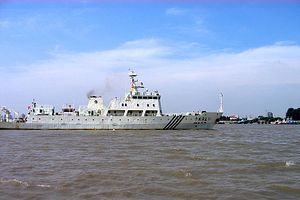Last week, Cambodia’s foreign minister Hor Namhong suggested that Cambodia would continue to seek to be a mediator in South China Sea disputes between China and the claimant states in the Association of Southeast Asian Nations (ASEAN).
“Cambodia wants to mediate in order to reduce the tense atmosphere between ASEAN and China because we discern that no solution can be found without talking to each other,” Hor Namhong said according to Voice of America.
For those who follow developments in the South China Sea and Southeast Asia closely, the suggestion of Cambodia as a mediator in the disputes is a rather curious one. True, the country is not an ASEAN claimant unlike Brunei, Malaysia, the Philippines and Vietnam. But mediation is a tall order even for more capable Southeast Asian states like Indonesia, despite its status as primus inter pares within ASEAN and its role – led by former Indonesian diplomat Hasjim Djalal – in informally conducting workshops on the issue since the 1990s (See: “No, Indonesia’s South China Sea Approach Has Not Changed”). The case for Cambodia assuming such a role does not appear to be a very strong one by comparison.
Furthermore, the failure of ASEAN and China to make any diplomatic headway in the South China Sea disputes has never really been because of the lack of “talking to each other,” as Cambodia’s foreign minister seemed to suggest. The real problem, long recognized by those familiar with the issue, is Chinese foot-dragging on measures like a binding code of conduct (CoC) on the South China Sea, as well as efforts designed to disrupt and undermine the ASEAN unity required to reach a constructive solution. (See: “China’s Plan for ASEAN-China Maritime Cooperation”).
Hor Namhong should know this better than most. It was he, after all, that presided over the disastrous ASEAN Summit in 2012 during Cambodia’s chairmanship that saw the group’s unprecedented failure to adopt a joint communique (See: “ASEAN’s Soul Searching After Phnom Penh”). Hor Namhong’s unreasonable refusal to include even a reference to the Scarborough Shoal in the communique despite the understandable insistence of several key ASEAN members was not exactly the conduct one expects of a potential mediator. Reports of Phnom Penh’s complicity with Beijing by those present – including allegations that Cambodia had shown drafts of the communique to China – also did not inspire confidence.
Cambodia’s statements since that disaster have not been that reassuring either. As I pointed out in an earlier piece, Prime Minister Hun Sen has issued deceiving remarks about the South China Sea issue solely being an issue between the claimant countries and China, rather than one that affects the whole of ASEAN. As I clarified then, ASEAN – including Cambodia – does indeed have a position on the South China Sea issue even if it is – as with other decisions in ASEAN – a lowest common denominator one which is the product of consensus between all ten countries (See: “Does ASEAN Have A South China Sea Position?”).
Beyond their inaccuracy, Hun Sen’s comments were also rather unhelpful because they help reinforce the very ASEAN disunity that China is trying to sow. That in turn arouses further suspicions about Cambodia’s collusion with China – regardless of the extent to which this is true (See: “Cambodia and China: With Friends Like These…”).
Given all this, it is difficult for one to imagine Cambodia as a mediator in the South China Sea disputes. However, if the country wants to be helpful, it can start with a few modest steps. First, it can join some of its more forward-leaning ASEAN counterparts and publicly acknowledge the reality that the South China Sea affects the region as a whole and therefore requires a regional response to a certain extent.
Second, it can act in ways that demonstrate to member states and the international community more generally that its relationship with China does not come at the expense of ASEAN unity. That includes more than bland statements of reassurance following certain events (See: “Why is A Big Cambodian Military Delegation in China?”). For example, Cambodian officials should call for a quick conclusion to the code of conduct on the South China Sea, and use some of their meetings with China to press it to do the same. Disruptions to regional peace and stability risk preventing all Southeast Asian countries – including Cambodia – from realizing the shared economic prosperity that results from relations with various countries including China.
These simple steps, rather than overly ambitious quests to ‘mediate’ the South China Sea disputes, would arguably go much further in restoring Phnom Penh’s credibility and convincing observers that it is actively committed to making progress on the issue, rather than hindering it.































